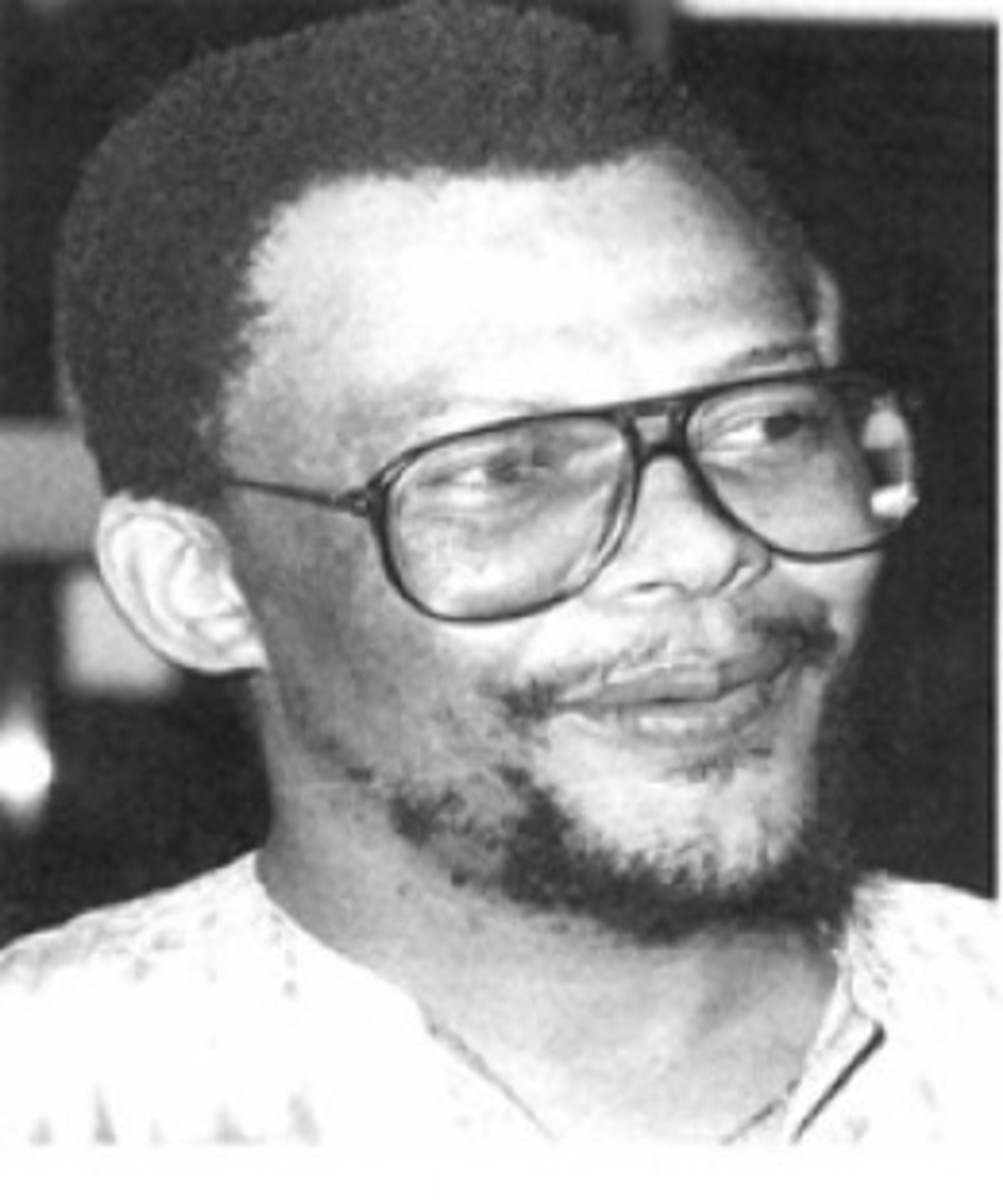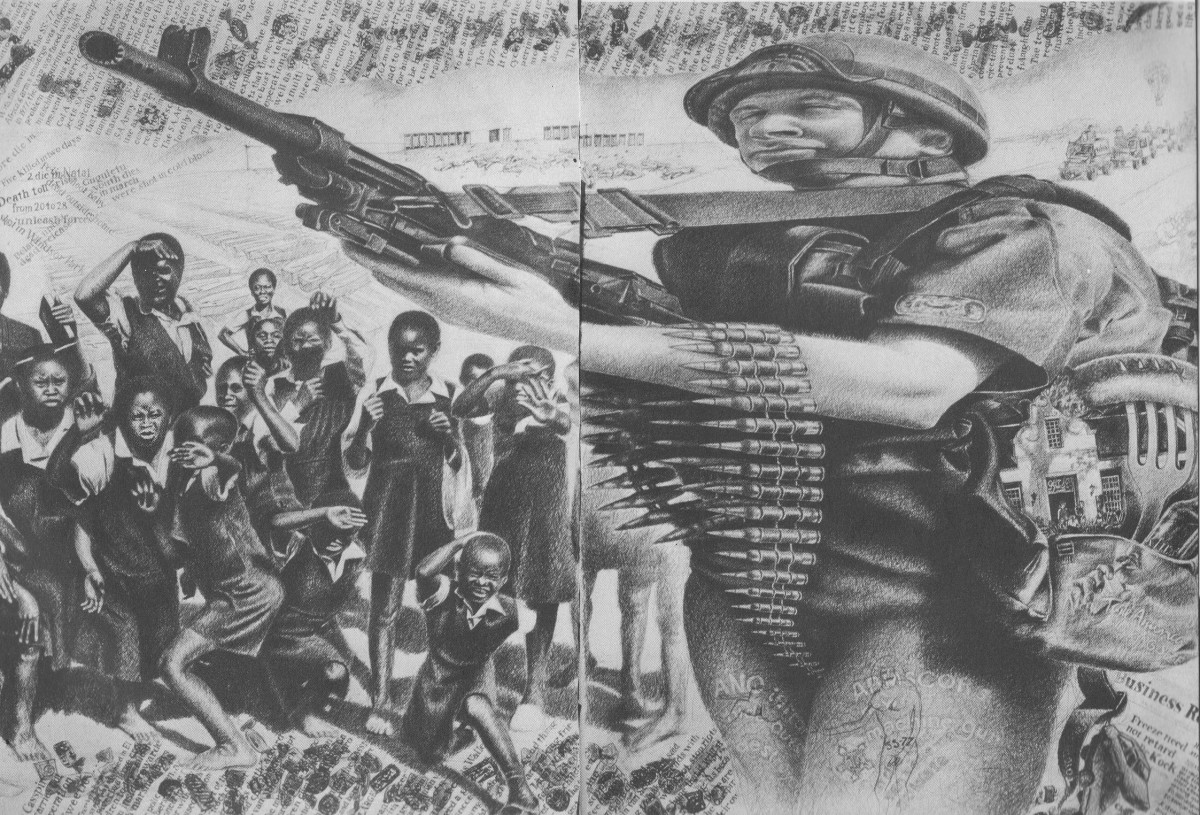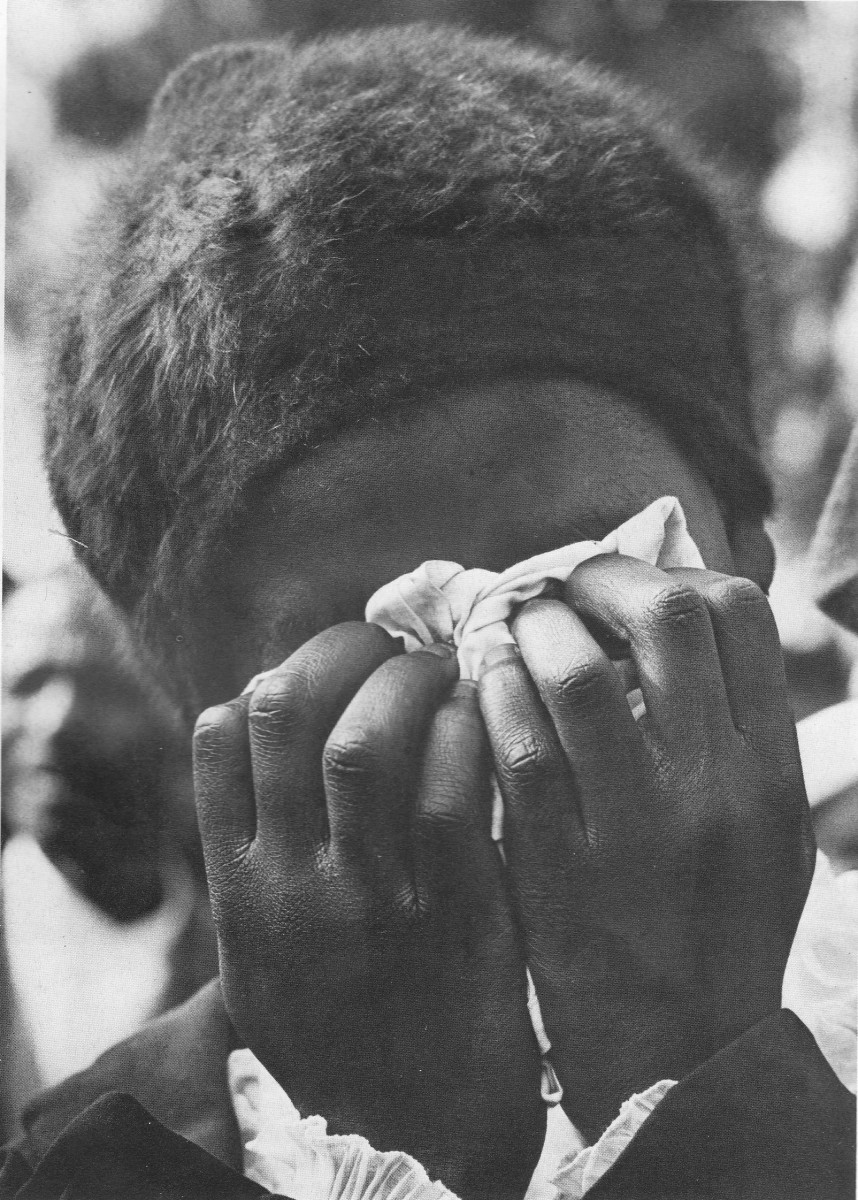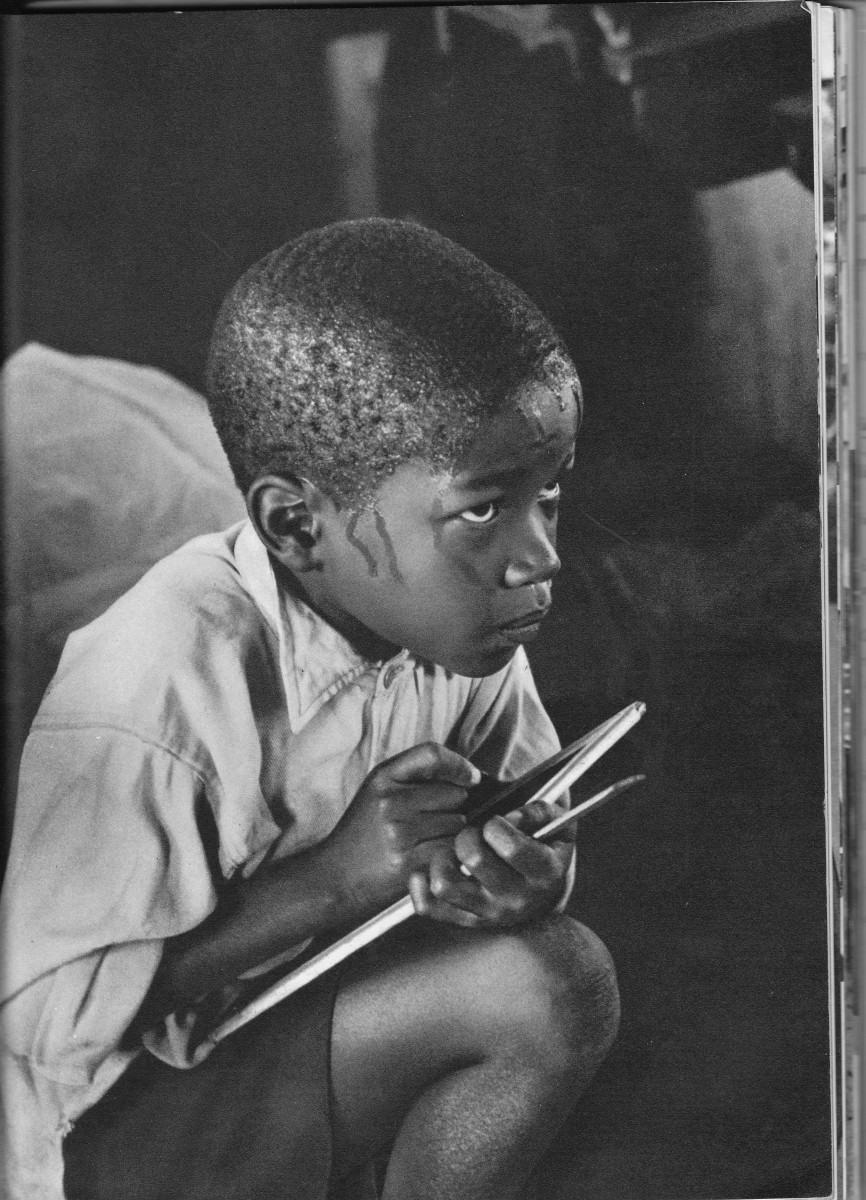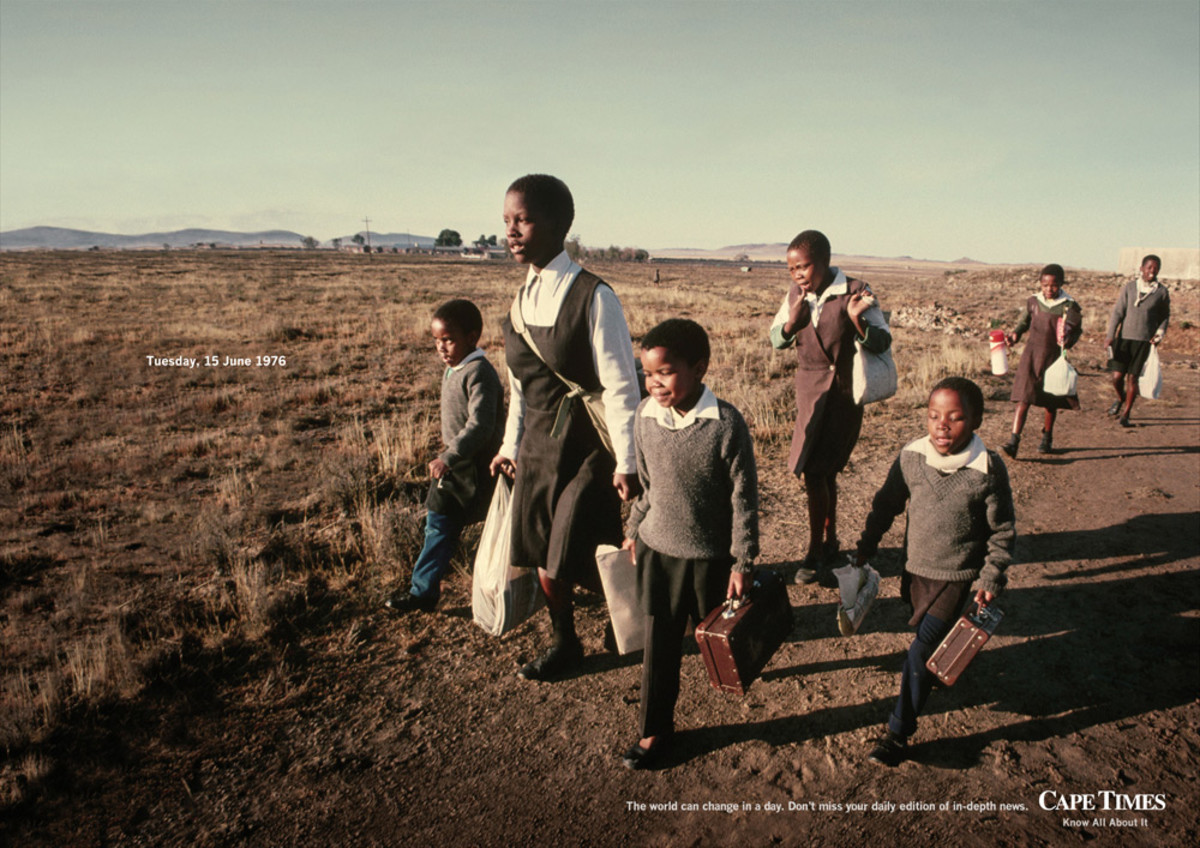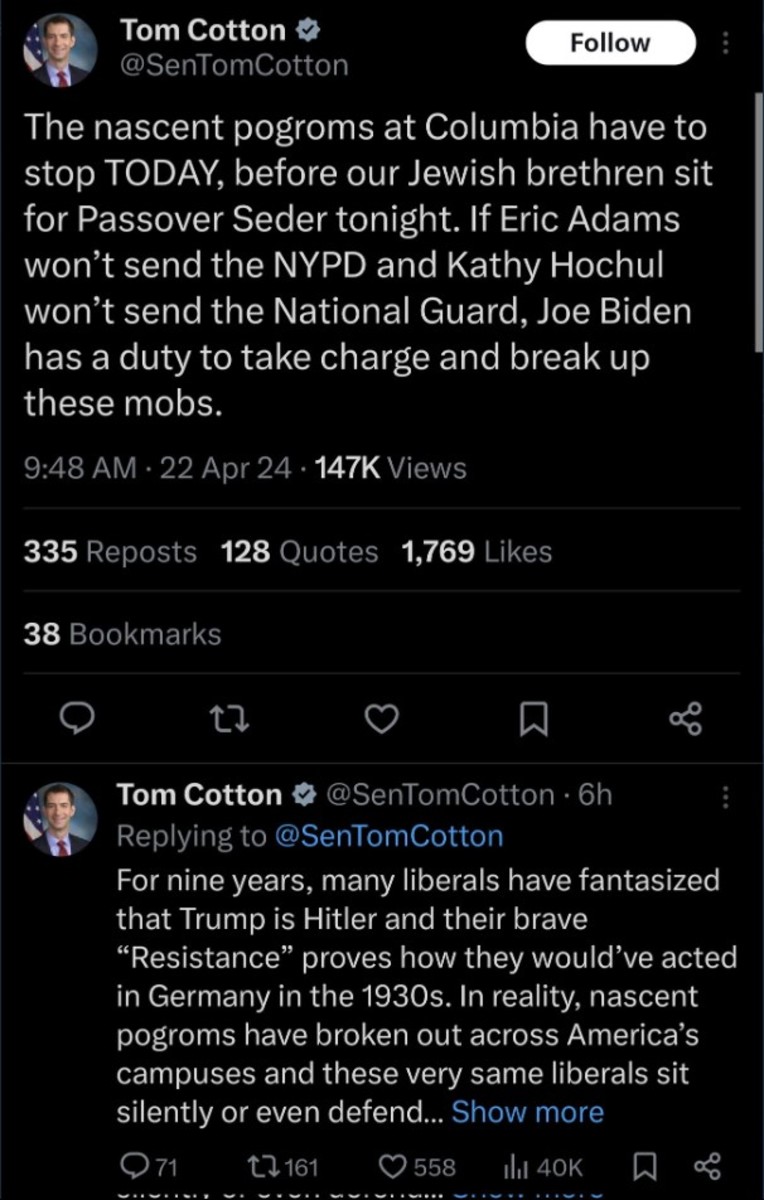Black History: Life under Apartheid
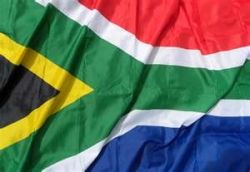
ANC Welcomes Ruling on Derby-Lewis Parole Application
The late Margaret Thatcher, former British Prime Minister, supported the apartheid regime. She refused to bring economic sanctions against apartheid South Africa.
Nubiart - a different perspective on the Afrikan world.
Decision in the Pretoria High Court welcomed by ANC.
This lens also contains reviews of early anti-apartheid films "Come Back Africa" and "The End of the Dialogue". Filmed in secret, they give us a glimpse of life under apartheid.
News, book review, events and more
Peeping through the Reeds - Review of Peeping through the Reeds
Peeping through the Reeds by South African Dr. June Bam Hutchison (pen name Musuva)
One woman's emi-autobiographical account of growing up "coloured" in apartheid South Africa.

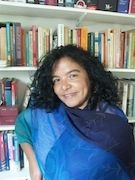
Black Women and The Apartheid Uprisings
Personal Recollections from June Bam Huchison
We had an evening in London with Dr. June Bam Huchison hosted by London Black History Walks.
Dr. Huchison shared her personal recollections of life under apartheid. As a young woman, Dr. Huchison went into hiding with her husband. While heavily pregnant, she received frequent threats via telephone (it was not clear how they managed to phone her while she was in hiding) and later, when she gave birth, the threats were carried out with the complicity of doctors. For more about this, see the review of her book, Peeping thruogh the Reeds, above.
Many of these things have never been shared before, and never came in front of the TRC. But she said that people are starting to gain the courage to tell their stories.
Education and the Black Child
Under apartheid, Black children were taught that they were inferior and sub-human.
"Coloured" people were told that they were mongrels, extremely lazy, useless and drunk and never worked. They had to be controlled and given passes. They were the worst of savages.
Schoolbooks contained these stereotypes, so school pupils were expected to repeat them on their exams in order to get good exam results.
Black children were told that they were not human beigns, their brains were very small and math was beyond them. They were destined to be gardeners, mine workers or migrants, taken many miles from their families.
People were pink and went on holiday, and their pets also went on holiday.
Schoolbooks contained these stereotypes. School children had to learn these things in order to pass their exams. Dr. bam Hutchison recalled that she had had to write on her exams, "The white people ar the civilized people of South Africa", "The white people brough civilization to South Africa". But even as a child, she was very strong-minded and would remind herself that it was all lies - that was how she survived.
In order to recall these things now, she has to remember them first in Afrikaans, as the children were taught in Afrikaans. Secondary schools had to teach half the curriculum in Afrikaans.
1976 Soweto Uprising
Dr. Bam Huchison was a schoolgirl at the time of the children's protest of 1976. It began in Soweto and spread to the Cape, where she lived.
The chldren got up and got ready to school. They had been careful not to let the adults know what they were up to. Parents would tell you, "Don't protest, you'll end up in prison like Mandela", and demonstrations were illegal.
Student leaders had organized the march in the township. They had had just three days to do so. Steve Biko had been working with several schools.
The children were protesting against having to learn Afrikaans, the language of the oppressor. When they beat and tortured people, they spoke in Afrikaans.
The teachers were not educated or qualified, they were just bouncers. Dr. Bam Huchison remembers one teacher trying to stop them from joining the protest, but they joined anyway. Somebody told her mother they had seen her at the protest, and her mother went and fetched her home.
That was the day the army shot the children in Soweto. The army shot them in the back as they were trying to leave. Nobody could remember afterwards how they got away and got home safely. They ran through back yards and got home any way they could.
After this incident, some of the children were so angry that they left and went to Mozambique to join the armed struggle.
Decision in the Pretoria High Court
17 March 2009
The African National Congress has noted the decision of the Pretoria High Court today (17 March 2009) to dismiss the parole application of Clive Derby-Lewis, one of the killers of ANC and SACP stalwart Chris Hani.
The ANC respects and welcomes the decision of the court.
The callous murder of Isithwalandwe Chris Hani in 1993 struck a grave blow to those South Africans who regarded him as a hero of our liberation struggle, and threatened to derail the process towards a political settlement in this country.
Our thoughts have been with the Hani family during the court application.
Issued by: Jessie Duarte, National Spokesperson
More information: Ishmael Mnisi 082 333 5550

Come Back, Africa
Film about Apartheid South Africa
Filmed in secret in Johannesburg and in the township of Sophiatown, "Come Back Africa" was made in 1960 and depicts life under apartheid. It was filmed under a cover story of making a musical. The trailer for this film is below.
Although nominally a feature film, it contains a great deal of documentary footage.
Zachariah has come to Johannesburg from the countryside in search of work.
Leaving his job as a miner because of the low wages, he is fired from a series of jobs including mining; domestic work; washing cars, and so forth. Each time he applies for a job, he has to produce his passbook. Without it, he could be arrested.
Similarly, when his wife comes to stay with him, he explains to her, "You need a pass to work and another to live in Johannesburg". She is naive enough to ask him, "What is a pass?". Clearly, the news had not yet reached the countryside that in the town, you needed a pass for everything.
Intercut with scenes of work and home life, we see Black people
- arriving in town, pouring out of trains, hundreds at a time, on their way to jobs where they will service white people;
- hundreds more, at any one time, walking the streets, looking for work or heading towards their jobs.
On their day off, Zachariah and his wife wander through Sophiatown, giving us a glimpse of the life of the township. Groups of people walking around. Church groups marching. Everywhere, people playing music. Men sitting and drumming on oil cans while others march around them in a circle. A wedding party make their way to the church on foot, the bride in her long white veil, protected by a white umbrella. A group of children with pennywhistles, one strumming a guitar.
Sophiatown was incredibly vibrant. With all the pressures of life under apartheid, people still live their lives. Women dance in the street.
At a gathering, Miriam Makeba sings "I Love My Baby Even If He Drinks Too Much".
(Starting in 1955, Sophiatown was destroyed by the apartheid government, which did not permit Black people to own land. People watched as their belongings were loaded onto the backs of trucks and they were sent off to Soweto. To read more about this, see: Winnie Mandela. See also: The End of the Dialogue, below.)
For all that people enjoy their connection with life, we still see the toll apartheid takes on them. The poverty, the degradation, the appalling living conditions, the constant need to bow and scrape to white people, and answer "Yes, baas". The frustration, disappointment and unexpressed rage.
Zachariah is fired from one job because his "baas" suspects him and a friend of being Communists and belonging to the ANC.
We also see other, familiar problems still affecting us in the modern world - gang violence and the reliance on alcohol.
The film also has an incredible score made up of contemporary South African jazz.
The filmmakers were in constant danger of being discovered. This film was made in the days before portable cameras and employed amateur actors who were depicting scenes similar to what they experienced in their daily lives. In this it is similar to "Johnny Mad Dog". (See "African Women's Creativity").
Unfortunately, "Come Back Africa" is not yet out on DVD. If you get a chance, do see it. Check out the trailer, below.
See also: The End of the Dialogue, below.
Come Back, Africa Trailer - Trailer from the film Come Back, Africa,
Come Back, Africa was filmed in secret under apartheid. For more information, see above.
The End of the Dialogue
Documentary about Apartheid South Africa
This documentary was made in 1969, nine years after Come Back Africa.
Like that film, it was made in secret, under the cover of touring with the Cambridge Theatre Company.
The camera shows us the contrast between the lives of Black and white people under apartheid. The film opens with scenes of white people enjoying a rugby game.
It then switches to Soweto. A voiceover gives us facts and statistics: 600,000 people live there. Most of the time, it is deserted except for the children. Their parents are at work all day, earning the money to pay for their basic needs, so "Black parents are strangers to their own children". Sixty percent of children die before the age of five. The average life expectancy is 34 years.
People were living in slums which had been condemned in the 1930s.
A couple earned on average 12/month. Rent was 16/month, and the difference was often made up by the children's wages. Children could earn small amounts of money selling papers; we see children carrying baskets of shopping for the white "madams".
The train platforms for Black people are surrounded by barbed wire and, at first glance, resemble concentration camps.
We see a school for Black children, contrasted with one for white children. The Black children are only to be educated to certain levels, to enable them to work at jobs that service wihte children. And Black children have to pay for their own books.
It is illegal for a husband and wife to live together in a white area. Meanwhile, the women and children have been banished from one township as "superfluous". The township is only for male workers; their families have been banished to scratch a living in a "homeland" or bantustan. The men lived in hostels 36 people to a room, and slept on concrete bunks.
The children in the bantustan often suffer from illnesses including kwashiorkor, a disease of malnutrition.
One thing that particularly struck me about this film was the amount of investment the government put into breaking up African families. At the time of filming, more male-only housing was being built. The government did not want to invest in schools for Black children, but was more than happy to invest in the destruction of African family life. Similarly to what happened during slavery, husbands were separated from their wives, and children from their parents. I am sure the psychological consequences of this were and are profound.
As in Come Back Africa, Black people were totally dependent on their white employers, without whom they could not remain in a city. These policies created a transient workforce where people spent all their time and energy either working or looking for work. The existed only to serve their white employers. In this, they were similar to the Dalit population of India.
This documentary was very hard-hitting. The filmmakers managed to film in a variety of settings including a mine, a Black township and a Bantustan, which white people normally would never have seen.
Making the Film
The Making of "End of the Dialogue"
Because the film was made under cover of touring with a theatre company, the makers were given access to otherwise forbidden areas such as a mine, a Bantustan and the Langa township.
They were working with 100-foot rolls of film. They visited the mine to view a "mine dance" which was on the tourist trail, but during the dance, they sneaked off and filmed secretly.
The Cambridge Theatre Company agreed to go to South Africa only on the basis of being able to perform to Black as well as white audiences. As they were breaking the cultural ban, they were welcomed by the government as honoured guests.
Being white, they were able to film without anyone from the authorities batting an eye. However, they still needed to get the film out of the country before they could edit it .
The drama tour took them around the country and paid for their living expenses. They were thus able to see, and film, things that white South Africans and tourists normally never saw. The members of the touring company were very affected by what they saw.
Steve Biko actively supported them by arranging transport for them to different places around South Africa.
The film was shown on BBC TV and screened in cinemas, to great critical reception. The Evening Standard's headline the night before the BBC screening shouted, "'Malicious BBC Film' Protest by South Africa".
These films were screened at the BFI in conjunction with London Black History Walks. For more info about their work, see "London Black History Walks".
The World against Apartheid
BBC Docmentary on the History of the Anti-Apartheid Movement
These are notes on the BBC documentary The World against Apartheid.
Part 2 - Fair Play
As the title suggests, this episode focused on sport.
For white South Africans, sport was like a religion. International sporting events were a key battleground.
A successful sports boycott would be as painful and disastrous as an economic boycott.
Whites enjoyed all of the privileges. Coloreds had some privileges. Black people had none.
But the growing international anti-apartheid movement was fighting back.
By the 1960s, every major anti-apartheid leader was either in prison, banned or in exile.
There had been an emphasis on fairness in sport. Black athletes were some of the best in the country, but they were excluded from the Olympic team.
The rules of the Olympics state that no country that practices discrimination can participate. [Note, Olympic teams from some countries, including Japan, are flying their male athletes first class while the women athletes have to fly economy. Saudi Arabia has only just agreed to allow women onto its Olympic team.]
Dennis Brutus , activist, educator and poet organized a meeting. When the secret police arrested him, they did not handcuff him. One told him they hoped he would run away so they could shoot him.
Brutus ran away and they shot him. The ambulance drove away leaving him there. He was subsequently sent to prison and did hard labour alongside Mandela and Sisulu.
1964 - Tokyo Olympics
From prison, Dennis Brutus began to organize a campaign to exclude South Africa from the Olympics.
The International Olympics Committee (IOC) was made up of wealthy white men, and refused to exclude South Africa from the games.
Other African countries staged a boycott wherever South Africa participated. So the IOC told South Africa they could participate providing they agreed that selection in future would be done on merit. Because they refused to give assurances that this would be the case, South Africa was excluded from the Tokyo games.
This was a suspension, not an expulsion.
1968 - Mexico Olympics
Brutus renewed the campaign to have South Africa excluded from the games. The IOC voted that South Africa should not be invited.
Brutus met with people from all over the world. He built a coalition of African, Asian and Latin American countries that planned to boycott the games. In the end, 90 countries threatened to withdraw from the games.
Click here for a short film on the Black Power protest at the 1968 Olympics.
Two years later, South Africa was permanently banned from the Olympics and all other international sporting competitions apart from rugby.
It has been said that rugby was the white man's sport, whereas football (soccer) was supported by Black people.
1969
At London's Heathrow Airport, a demonstration was held against the Springboks, the South African rugby team. Students were demonstrating and protesting worldwide.
The Anti-Apartheid Movement used direct action, filling glass bottles with tacks and throwing them onto the field.
The South African government compiled a dossier on Peter Haine of the Anti-Apartheid Movement. A private prosecution was brought against him for disrupting South African sport.
There was an attempt to frame him for robbing Barclays Bank, using a lookalike.
1970
Because of Anti-Apartheid demos and the movement for boycotting South Africa, the Springboks stopped playing in Britain, but they still played internationally.
1971
In Australia, trade unions refused to work on planes or trains or in hotels serving the Springboks.
Aboriginal activists were very prominently involved in demos.
Demonstrators were violently attacked by rugby fans and police. In Queensland, a state of emergency was declared and the army was called out.
1972
In New Zealand, the first protests against South African racism had taken place in 1921 (the same year as the attack on The Black Wall Street).
The Maoris were some of the best New Zealand rugby players. One player had played in 193 against South Africa. But because of apartheid, he was not allowed to try out when New Zealand went to South Africa in 1939.
1973
Maori activists teamed up with the local New Zealand Anti-Apartheid movement. The Springboks tour was deferred because it would be chaotic due to demos and disruption.
1975
New Zealand's new Prime Minister, Muldoon, had campaigned and been elected on a platform of allowing South Africa to come to New Zealand to play.
1976 - Montreal Olympics
Young people had been shot by the security forces in Soweto. Many international journalists and news teams had been present in South Africa at the time and had reported on the demonstraton and the attack by the security forces, so the world had witnessed the brutality of the apartheid regime.
African athletes in Montreal refused to speak to New Zealand journalists.
29 nations pulled out of the games because New Zealand would be participating and had allowed South Africa to play in New Zealand. Athletes had made great sacrifices because they had trained for so long, and then their countries had pulled out.
New Zealand had become an international pariah.
1977 - Gleneagles Commonwealth Conference
Commonwealth General Secretary Sir Sonny Ramphal persuaded Commonwealth leaders to take an official stand against sporting contacts with South Africa.
The conference voted to take every practical step to end sporting links with South Africa.
1981
This was the last great battle in the struggle to get South Africa banned from international sport.
There were strong contacts with the aboriginal movement in Australia. A big demo was held in Gisborne, the first stop on the Springboks tour.
"Operation Everest" was the name given to the demo. 400 demonstrators pulled down a fence and stormed through fans and onto the field. The 25,00 fans present wanted to kill them. The police stood between the demonstrators and the fans, and all of this was captured and broadcast on TV. The game was cancelled.
Great Stuff on Amazon
Briton's Alleged Torture in Guanatanamo Bay
UK resident Binyam Mohamed, who was recently freed from Guantanamo Bay , has said he would not have faced torture or extraordinary rendition but for British involvement in his case. Mr Mohamed was interviewed for three hours by an MI5 officer calling himself John whose role was to support the American interrogators. The MI5 agent who questioned him has previously denied at the British High Court any suggestion that he threatened or put any pressure on Mr Mohamed.
"If it wasn't for the British involvement right at the beginning of the interrogations in Pakistan , and suggestions that were made by MI5 to the Americans of how to get me to respond, I don't think I would have gone to Morocco . It was that initial help that MI5 gave to America that led me through the seven years of what I went through."
In July 2002 Mr Mohamed was flown to a secret site in Morocco where he was tortured by local officers asking him questions supplied by British intelligence operatives and showing him hundreds of photographs of Muslim men living in the UK . Mr Mohamed said that 70% of questions put to him came from sources in the UK .
The alleged torture included a razor being used to slash his genitals. At Guantanamo Bay where, he said, guards attacked him for refusing to give his fingerprints. He claimed abuses at the camp had increased since President Barack Obama announced his intention to close it within a year. The UK Attorney-General Baroness Scotland is continuing a review into whether to ask police to investigate allegations of British collusion in mistreatment of Mr Mohamed.
On Thursday, a Home Office spokesperson said: "The government unreservedly condemns the use of torture as a matter of fundamental principle and works hard with its international partners to eradicate this abhorrent practice worldwide. The security and intelligence agencies do not participate in, solicit, encourage or condone the use of torture or inhumane or degrading treatment."
British PM Gordon Brown said he had asked the Intelligence and Security Committee to help draw up new guidelines the government wants to apply on the detention and interviewing of overseas detainees. The committee has reopened its investigation into rendition, in the wake of new information about the treatment of Mr Mohamed, which it said raised questions about the "policy and procedures" of UK intelligence agencies. The committee - made up of senior MPs and peers - had originally looked into Mr Mohamed's case as part of its inquiry in 2007 into the US policy of "rendition" of terror suspects. At the time, the committee concluded that MI5 and MI6 had no direct involvement in the rendition programme. The US has dropped all charges against Mr Mohamed.
Now as we have been repeatedly reassured by the highest forces in the British Establishment that Britain does not condone torture the following article arising from the case of Babar Ahmad, from Tooting, south London not Guantanamo Bay is worth quoting at length. In 2007 a non-IPCC investigation concluded his claims were unsubstantiated. It is worth remembering that the Territorial Support Group are the direct heirs of the much-hated, much-feared racist death squad, the Special Patrol Group (SPG).
Police Officers Accused of 60 Other Assaults
Guardian report on abuse by Metropolitan Police Officers
Met Reveals Four Were Subject of Dozens Of Allegations By Black Or Asian Men
Matthew Taylor and Sandra Laville, The Guardian, Saturday 21 March 2009 report as follows:
Police officers involved in a "serious, gratuitous and prolonged" attack on a British Muslim man that led the Metropolitan Police to pay 60,000 in damages this week have been accused of dozens of previous assaults against Black or Asian men.
Babar Ahmad, 34, a terrorist suspect, was punched, kicked, stamped on and strangled during his arrest by officers from one of the Met's Territorial Support Groups at his London home in December 2003.
After six years of denials from Scotland Yard, lawyers acting for the Metropolitan police commissioner, Sir Paul Stephenson, were forced to admit in the High Court that Ahmad had been the victim of sustained and gratuitous violence during his arrest and agreed to pay 60,000 in damages.
The Met was aware for years that the six officers involved were the subject of repeated complaints. According to documents submitted to the court, four of the officers who carried out the raid on Ahmad's home had 60 allegations of assault against them - of which at least 37 were made by Black or Asian men. One of the officers had 26 separate allegations of assault against him - 17 against Black or Asian men.
The Met has confirmed that since 1992 all six officers involved in the Ahmad assault had been subject to at least 77 complaints. When lawyers for Ahmad asked for details of these allegations it emerged that the police had "lost" several large mail sacks detailing at least 30 of the complaints.
For more on this, see The Guardian 21st March 2009.
Nubiart Diary
Events Listings and More
2011 END OF YEAR ROUND-UP
What a year!!! Who could have foreseen the so-called ‘Arab Spring’ with the removal of Ben Ali in Tunisia, Hosni Mubarak in Egypt, Ali Abdullah Saleh in Yemen and the assassination of Col Muammar Gaddafi in Libya? Meanwhile Ivory Coast’s former President Laurent Gbagbo will, as we had predicted at the start of the year, be meeting up with Liberia’s Charles Taylor at the ICC in the Hague having been extradited there for refusing to hand over power to Alassane Ouattara following a disputed election and armed confrontation. On a positive note we saw South Sudan gain its independence but the ICC is still tracking the sly old fox, Sudanese President Omar Al-Bashir, for whom they also have a place reserved up in The Hague. For 2012 it is worth watching if the so-called ‘international community’ try to slap ICC-type charges on the Eritrean President Isaias Afewerki, the country has just had another round of UN Security Council sanctions renewed and upgraded for their alleged support of Al-Shabab in Somalia.
Across the Horn of Afrika and the western Sahel there have been increasingly more devastating droughts. Access to sources of water will become more crucial as portrayed in films we reviewed such as Marion Hansel’s ‘Sounds of Sand’ [Bluebell Films] and Licinio Azevedo’s ‘The Water Wars’ [Notes on Cinema]. War, rape, forced migration, unemployment and lack of a credible government have been the continuing hallmarks of both Somalia and the D R Congo.
Scholar-activist Manning Marable passed away just as his controversial book on Malcolm X hit the stands. Other notables who passed on were the environmental campaigner and founder of the Green Belt Movement Wangari Maathai, anti-apartheid stalwart Albertina Sisulu and Biafran leader Gen Ojukwu. We had another case of war porn with the live assassination of Osama bin Laden in Pakistan broadcast around the world.
In Britain we witnessed the police killings of Mark Duggan and Smiley Culture and the subsequent lies they and their anti-Afrikan colleagues at the IPCC pimped in the media. Jamaica’s JLP PM Bruce Golding resigned after his administration was exposed as supporting the garrison community mindset by trying to avoid the extradition of Christopher ‘Dudus’ Coke to America on drugs and racketeering charges for which Coke was eventually convicted in August.
On the economic front four years into the current financial crisis the self-deluded, self-appointed ‘Masters of the Universe’ continue to get a spanking like a bunch of first year public schoolboy fags. The only problem is that they insist on dragging the sensible majority of the world’s population down to their corrupt, sleazy level.
More Stories about the Police
Let's round up a few more recent stories concerning Britain 's finest export.
POLICE OFFICERS HELD IN DRUGS AND MONEY LAUNDERING OPERATION
A Northamptonshire Police officer and a Bedfordshire Police officer were arrested on suspicion of misfeasance in a public office. Ten other men and two women from Northampton were also held on suspicion of offences including being concerned in the supply of class A drugs - cocaine and heroin - and money laundering. Police said the operation recovered more than 20,000 in cash, while two vehicles were seized, as well as property believed to have been stolen, including expensive electrical goods and designer clothing. One person is suspected of incitement to corrupt police officers. Luckily for the public, "both have been suspended from duty".
EX-POLICEMAN JAILED FOR DRUG SMUGGLING ATTEMPT
A former Metropolitan Police Sergeant was one of five men jailed for attempting to smuggle 4m worth of drugs across the Channel. Michael Daly of Bexley, who served in Peckham crime squad, was sentenced to eight years for conspiracy to import class A and B drugs. Daly and accomplice Paul Young, from Kent , were arrested after landing on the beach at Capel-le-Ferne last May. Two hundred kilos of white powder were later recovered. Daly's brother is serving 25 years for drug smuggling after 345m worth of cocaine was recovered off County Cork in 2007.
'BNP MEMBERSHIP' OFFICER SACKED
PC Steve Bettley's whose name appeared on a list of 12,000 British National Party (BNP) members leaked online has been sacked. Merseyside Police conducted an investigation into the allegation and concluded he had been a member of the BNP. The officer was briefly the driver for Chief Constable Bernard Hogan Howe giving him access to sensitive information. The Police Federation will be fully supporting Constable Bettley through the appeals process which includes a Chief Constables Review and Police Appeals Panel.
'APE TAUNT' OFFICERS SETTLE CLAIM
Two Afrikan Police Community Support Officers who claimed a white officer mocked them with ape impersonations have settled the claim with the force. PCSOs Wayne Bell and Clint Charles told the employment tribunal that PC John Harrison had also used a stereotypical West Indian accent and street slang. They withdrew the case from the tribunal in Watford after reaching an agreement with the Metropolitan Police. The force had denied the claims. PC Harrison had denied all allegations. The PCSOs had also alleged that the force did not investigate their complaints properly.
GREENWICH POLICE CHIEF AXED
Finally, Chief Superintendent Chris Jarratt, Borough Commander for Greenwich in south-east London , will be 'moving on'. He faces questioning by the Independent Police Complaints Commission for allegedly lying to a judge when he headed the anti-corruption intelligence unit. It would be ironic if it was not so deadly. His officers at the Plumstead death-station failed to properly investigate numerous sex allegations against taxi driver John Worboys leaving him free to carry out his sick, perverted crime wave against a further 30 women. Officers at the same station failed to arrest Karl Bishop, two months before he stabbed Rob Knox to death. Plumstead is where the officers involved in the recent deaths in custody of our Afrikan brothers Saeed Noor, Paul Coker and Frank Ogboru were based.
Resources
- Afrikan Quest, Publishers of Nubiart Diary
Nubiart Diary is Afrikan Quest's weekly e-newsletter giving updates on Nubiart and recommending books, music and events. To subscribe e-mail us at: afrikanquest@hotmail.com and put 'Subscribe to Nubiart Diary' in the subject line. For more info cont - Success Strategies for Black People
Achieve Your Goals with Success Strategies - The Key to Confidence
Western society does not support Black people's self-esteem. We need to learn to love and value ourselves. Each one of us is unique. - Mandela Day
Mandela Day launched as anti-apartheid icon turns 91.
Featured Lenses

Black History International
This lens contains four polls and two Black history quizzes. Click here to listen to audio interviews with Zhana. Click here for loads of books about Blac...

Nelson Mandela - Long Walk to Freedom
This is the autobiography of the first democratically elected President of South Africa. His vivid, and often moving, descriptions bring to life the influenc...

London Black History Walks
London Black History Walks have been chosen by the Guardian as one of the Ten Best Guided Walks in London. For more info, see the Resources section below. L...

Endgame - The Beginning of the End of Apartheid
In 1985, a few very courageous individuals began top secret talks which led to the end of Apartheid in South Africa. This subtle, understated thriller depict...

Dr. Ambedkar, Visionary
Dr. Bhimrao Ambedkar was a great visionary who lived in India in the 20th century. Architect of the Indian Constitution, his work liberated millions of peopl...


